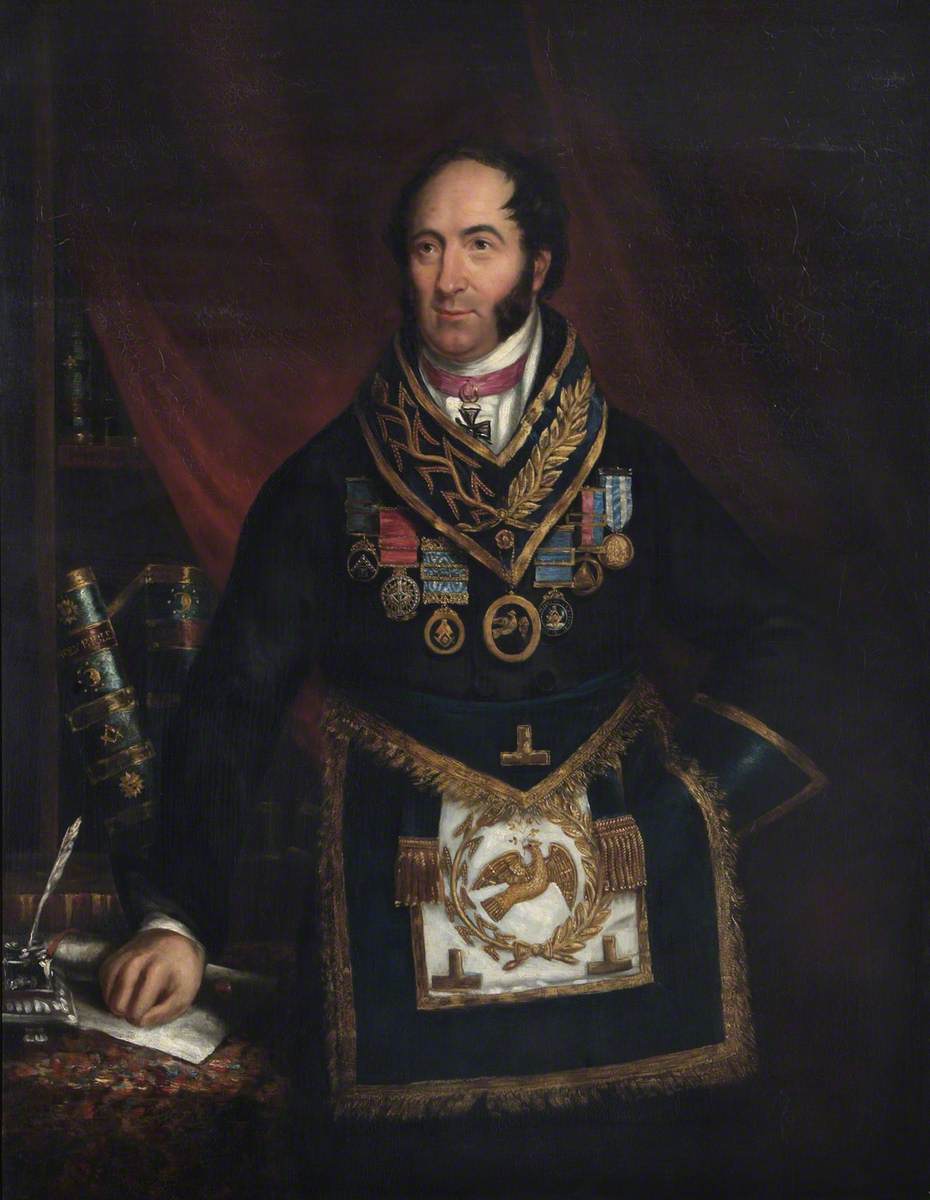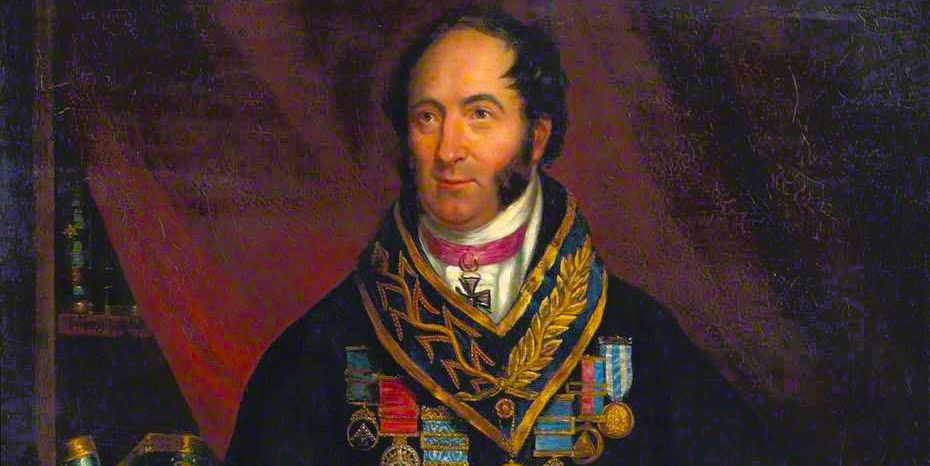
An English Freemason, distinguished for his services to the Craft. Robert Thomas Crucefix, M.D., I·.D., was born in Holborn, England, in the year 1797, and received his education at Merchant Tailors’ School. After leaving school, he became the pupil of Doctor Chamberlayne, a general and celebrated practitioner of his day, at Clerkenwell ; he afterward became a student at Saint Bartholomew’s Hospital and was a pupil of the celebrated Abernethy.
On receiving his diploma as a member of the Royal College of Surgeons, in 1810, he went out to India, where he remained but a short time ; upon his return he settled in London, and he continued to reside there till the year 1845, when he removed to Milton-on-Thames, where he spent the rest of his life till within a few weeks before his decease, when he removed, for the benefit of his declining health, to Bath, where he expired February 25, 1850.
Doctor Crucefix was initiated into Freemasonry in 1829, and during the greater part of his life discharged the duties of important offices in the Grand Lodge of England, of which he was a Junior Grand Deacon in 1836, and in several subordinate Lodges, Chapters, and Encampments. He was an earnest promoter of all the Masonic charities of England, of one of which, the Asylum for Aged and Decrepit Freemasons, he was the founder. In 1834 he established the Freemasons Quarterly Review, and continued to edit it for six years, during which period he contributed many valuable articles to its pages.
Brother Mackey says that in 1840, through the machinations of his enemies, for he was too great a man not to have had some, he incurred the displeasure of the ruling powers; and on charges which, undoubtedly, were not sustained by suficient evidence, he was suspended by the Grand Lodge for six months, and retired from active Masonic life. But he never lost the respect of the Craft, nor the affection of the leading Freemasons who were his contemporaries. On his restoration, he again began to labor in behalf of the Institution, and spent his last days in advancing its interests.
The belief of Brother Mackey was founded upon evidence that however satisfactory to him is not wholly in agreement with that given by Brother Hawkins, whose account in his Concise Cyclopedia of Freemasonry (page 60), is as follows:
Brother Crucefix set on foot a movement in favour of a charity for Aged Freemasons;’he advocated the erection of an asylum, while others urged that a system of annuities was a preferable scheme. The matter was keenly discussed for several years, and at a meeting on November 13, 1839, at which Doctor Crucefix was presiding some intemperate language was employed, as to which a complaint was made to the Board of General Purposes, and Crucefix was suspended for six months for not having checked the speakers; his suspension was confirmed at a Grand Lodge in June, 1840, and he then wrote a vehement letter to the Grand Master and puhlished it in the Freemasons’ Quarterly Review with many improper editorial observations; the letter was laid before the Board of General Purposes, and he was summoned to show cause at a Special Grand Lodge why he should not be expelled from the Craft; accordingly, on October 30, he attended and made a very. humble apology, which was accepted.
Doctor Crucefix died in 1850, in which year also the Asylum and Annuity Funds for Aged Freemasons and their Widows were amalgamated.
To his character, his long-tried friend, the venerable Oliver, pays this tribute:
Doctor. Crucefix did not pretend to infallibility, and , like all other public men he might. be sometimes wrong ; but his errors were not from the heart, and always leaned to the side of virtue and beneficence. He toiled incessantly for the benefit of his Brethren, and was anxious that all inestimable blessings should be conveyed by Freemasonry on mankind.
In sickness or in health he was ever found at his post, and his sympathy was the most active in behalf of the destitute brother, the widow, and the orphan. His perseverance never flagged for a moment; and he acted as though he had made up his mind to live and die in obedience to the calls of duty.
